INFJs are known for their empathy, intuition, and deep insights, and have a natural inclination to bring harmony and understanding to the world around them.
However, just like any other personality type, INFJs can experience periods of unhealthiness that can negatively impact their well-being and relationships. So, what are the signs of an unhealthy INFJ?
In this article, we’ll explore 11 warning signs of an unhealthy INFJ and what happens when their dark side takes over. So, let’s shed some light on the shadows and gain a deeper understanding of the challenges that an unhealthy INFJ might face.
But before we get into the traits of an unhealthy INFJ, let’s talk about what is an unhealthy INFJ first.
Related: The Dark Side Of The INFJ Personality Type
What Is An Unhealthy INFJ?
An unhealthy INFJ is essentially an INFJ who is not in a good place mentally, emotionally, or even physically.
You see, INFJs are usually known for their compassionate nature, deep understanding, and desire to make the world a better place. But when they’re unhealthy, those wonderful qualities can take a bit of a nosedive.
An unhealthy INFJ might become isolated, withdraw from social interactions, and feel overwhelmed. You might beat yourself up with self-criticism, striving for perfection but feeling like you never measure up.
Emotionally, you can get overloaded and exhausted, absorbing everyone else’s emotions like an emotional sponge. You end up neglecting your own needs, always putting others first.
And hey, let’s not forget about the overthinking! You can get trapped in a tornado of thoughts, analyzing every little detail until your head spins.
You feel like you have lost your balance, struggle with boundaries, your idealism goes awry, and you feel lost.
Now that we know what is an unhealthy INFJ, let’s find out the traits of an unhealthy INFJ and how does an unhealthy INFJ behave.
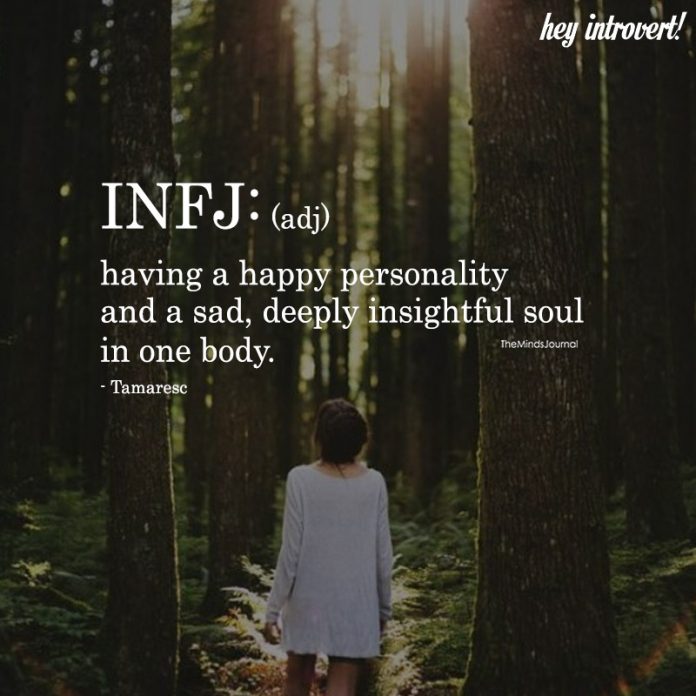
11 Warning Signs Of An Unhealthy INFJ
1. You end up making excuses for other people’s bad behavior.
When the dark side of an INFJ takes over, their compassionate nature can sometimes lead them down a challenging path. Unhealthy INFJs have a tendency to make excuses for the toxic behavior of others, unintentionally inviting chaos into their lives.
You rationalize someone’s hurtful actions by attributing it to their difficult upbringing, thinking that they don’t know any better. This stems from your innate desire to assist and support others, often attracting toxic individuals as you try to “rescue” or help them.
It’s a double-edged sword, as your light shines bright, but it also attracts those who drain your energy.
2. You care too much about what other people think of you.
This is one of the major signs of an unhealthy INFJ.
You often find yourself trapped in a web of paranoia, constantly doubting what others truly think of you. Innocuous comments or subtle body language can be misinterpreted as signals of hatred or subtle disdain, even when you’ve done nothing to warrant such negativity. It’s frustrating, isn’t it?
In this state, you might start seeing intense emotions where there are none, reading too much into a glance or a pause in the conversation and suspecting that it’s all directed at you.
It’s as if you’ve developed a habit of expecting the worst—believing that you’ll always be seen as an outcast or a freak. This mindset filters every new piece of information, perpetuating the cycle of paranoia.
3. You are obsessed with perfectionism and are extremely self-critical.
As an INFJ you are known for your high standards, which can be great for achieving greatness. But, when an INFJ becomes unhealthy, they crank up the self-criticism to eleven. Like, seriously, you’re your own harshest judge.
You set impossible standards and always chase that elusive perfection. And guess what? You constantly feel disappointed because, let’s face it, nobody’s perfect! This whole charade leads to stress, my friend, and a never-ending feeling of not measuring up. It’s like you’re trapped in a perpetual loop of self-doubt and inadequacy.
Related: What Is The INFJ Door Slam And Its 4 Stages
4. You engage in chronic overthinking.
How does an unhealthy INFJ behave, you ask? Read on then.
You have this incredible gift called intuition, which is like a superpower. But when it goes into overdrive, it can become a real pain in the you-know-where. Unhealthy INFJs, my friends, are the champions of overthinking, and if you have ever been in this dark zone, you know what I am talking about.
Imagine this: your mind becomes like a hamster wheel, spinning and spinning, analyzing every tiny detail and potential outcome of a situation. It’s like you’ve got a mental movie playing on repeat, and it’s exhausting.
This chronic overthinking leads to heightened anxiety, a truckload of indecision, and feeling trapped in your own mind. It’s like you’re stuck in an overgrown maze with no way out.
5. You are too scared of being vulnerable and letting other people in.
You have a natural inclination to take your time opening up to others, and that’s totally cool. But here’s the catch: when the dark side of an INFJ comes out, they put up ironclad walls, keeping their true selves hidden even from those closest to them. It’s like they’re locked away in their own emotional fortress.
Why, you ask? Fear of judgment. You are terrified of being scrutinized and misunderstood. So, you retreat into your cocoon, sealing off your thoughts and feelings from the world.
But here’s the sad truth: this isolation can lead to a deep sense of loneliness and despair. You as an INFJ, just like any other personality type, thrive on meaningful connections. You need strong relationships to truly flourish.
6. You absolutely hate conflict and just cannot cope with it.
This is again one of the biggest signs of an unhealthy INFJ.
Now, let’s be real, who doesn’t prefer harmony in relationships? It’s a no-brainer. But when your fear of conflict becomes unhealthy, things get tricky.
When faced with conflict, you’re more likely to hit the escape button. If you can’t quickly fix the issue and restore peace, you might shut down or physically leave the scene. Conflict is like a tornado that leaves you feeling unsettled and lost.
Here’s the thing, though. Unhealthy INFJs don’t crave arguments or enjoy engaging in conflict. All you want is to escape it, to get as far away from it as possible. You just want the tranquility you cherish so much.
7. You struggle with setting personal boundaries.
How does an unhealthy INFJ behave? Exactly like this!
As an INFJ, you are a born nurturer, with a heart that overflows with care. But when you’re unhealthy, setting and maintaining boundaries becomes a real struggle.
Imagine this: you get caught in a whirlwind of responsibilities. You have a hard time saying “no” and end up shouldering more than you can handle. This leads to you becoming overwhelmed, stretched thin, and guess what? Resentment starts bubbling up.
It’s like you’re stuck in a cycle of self-neglect, constantly putting others’ needs before your own. But here’s the thing: boundaries are crucial. Learning to say “no” when it’s necessary and prioritizing self-care is vital for your well-being. So, you need to practice that.
Related: The Elusive INFJ
8. You door slam too easily sometimes and find it hard to let go of resentment and grudges.
Ah, the infamous INFJ door slam and grudge-holding. Let’s delve into this intriguing aspect, shall we? Now, the door slam can actually be a healthy mechanism for an INFJ, protecting you from toxic relationships. It’s like a powerful shield of self-preservation.
But here’s the catch: the dark side of an INFJ comes out, and you slam that door without even trying to address the underlying problem. It’s like you skip all the steps and go straight to “goodbye.”
Instead of being a last resort, the door slam becomes your go-to approach for any relationship hiccup. It’s as if you’ve misplaced the key to open communication and problem-solving. And let’s not forget the grudges you hold tightly. You become the keepers of resentment, holding onto past hurts.
9. You engage in excessive criticism of others.
One of the major traits of an unhealthy INFJ is this.
You are known for your incredible understanding and empathy. But when you’re unhealthy, you can fall into the trap of excessive criticism.
As an unhealthy INFJ, you start nitpicking and being overly judgmental toward those around you. You focus on the flaws of others as a way to divert attention from your own internal struggles. It’s like a smoke screen, you know?
Instead of extending your usual compassion and understanding, you become a harsh critic. But here’s the thing: this excessive criticism only perpetuates your own unhappiness and distances you from meaningful connections.
10. You become emotionally volatile and have intense mood swings.
What is an unhealthy INFJ?
One moment, you’re the epitome of empathy and understanding, radiating warmth and compassion. But in the blink of an eye, you can transform into an irritable, emotionally reactive being.
These intense mood swings can leave everyone, including you yourself, feeling bewildered and on edge. It’s like riding an emotional rollercoaster with no warning signs or seatbelts.
The sudden shifts in emotions can be disorienting, creating confusion and tension in relationships. It’s important to remember that these mood swings are a sign of internal turmoil, and you need support and understanding.
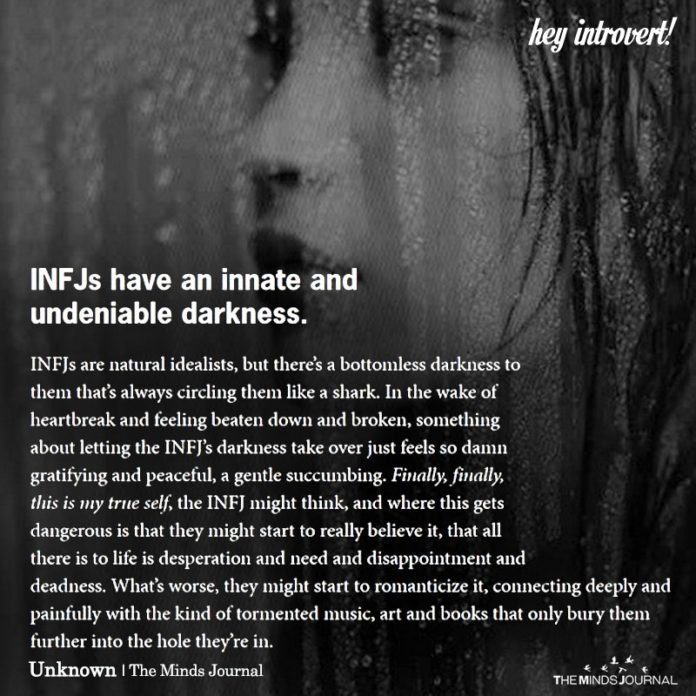
11. You isolate and withdraw yourself.
How does an unhealthy INFJ behave? Exactly like this! Also, this is one of the most common signs of an unhealthy INFJ.
INFJs usually flourish in the realm of meaningful connections. But when you retreat from your social circles and avoid interactions, something might be amiss.
When the dark side of an INFJ comes out, you start pulling away, seeking solitude instead. It’s like you’ve built an invisible wall around yourself. This withdrawal could be a red flag, indicating you’re overwhelmed or grappling with inner emotional turmoil.
Related: 7 Struggles of an INFJ Personality Type
How Can An Unhealthy INFJ Become Healthy Again?
- Self-reflection: Take time to understand and identify your own emotions, needs, and boundaries.
- Seek support: Reach out to trusted friends, family, or professionals who can provide guidance and a listening ear.
- Practice self-care: Prioritize your physical, emotional, and mental well-being by engaging in activities that rejuvenate and nourish you.
- Set boundaries: Learn to assertively communicate your limits and say “no” when necessary to avoid becoming overwhelmed.
- Embrace self-compassion: Treat yourself with kindness and understanding, accepting that nobody is perfect.
- Balance alone time and social interaction: Find the right balance between solitude and connecting with others to prevent isolation.
- Develop healthy coping mechanisms: Explore healthy outlets like journaling, creative expression, or mindfulness practices to manage stress and emotions.
- Cultivate self-awareness: Pay attention to your thoughts, emotions, and behaviors, fostering a deeper understanding of yourself.
- Engage in personal growth: Pursue activities or hobbies that promote personal development and allow you to explore your passions.
- Practice forgiveness: Let go of grudges and resentments, forgive yourself and others, promoting emotional healing and growth.
Takeaway
Understanding the warning signs of an unhealthy INFJ is crucial for your personal growth and well-being. By recognizing these signs, you can take steps to address your unhealthiness, seek support, and embark on a journey of self-care and self-discovery.
Related: 8 Paradoxes of Being An INFJ Personality Type
Remember, becoming a healthy INFJ is an ongoing journey that requires self-care, self-reflection, and a commitment to personal growth. Take it one step at a time, and be patient and gentle with yourself throughout the process.
Do you relate to any of these traits of an unhealthy INFJ? Let us know your thoughts in the comments down below!


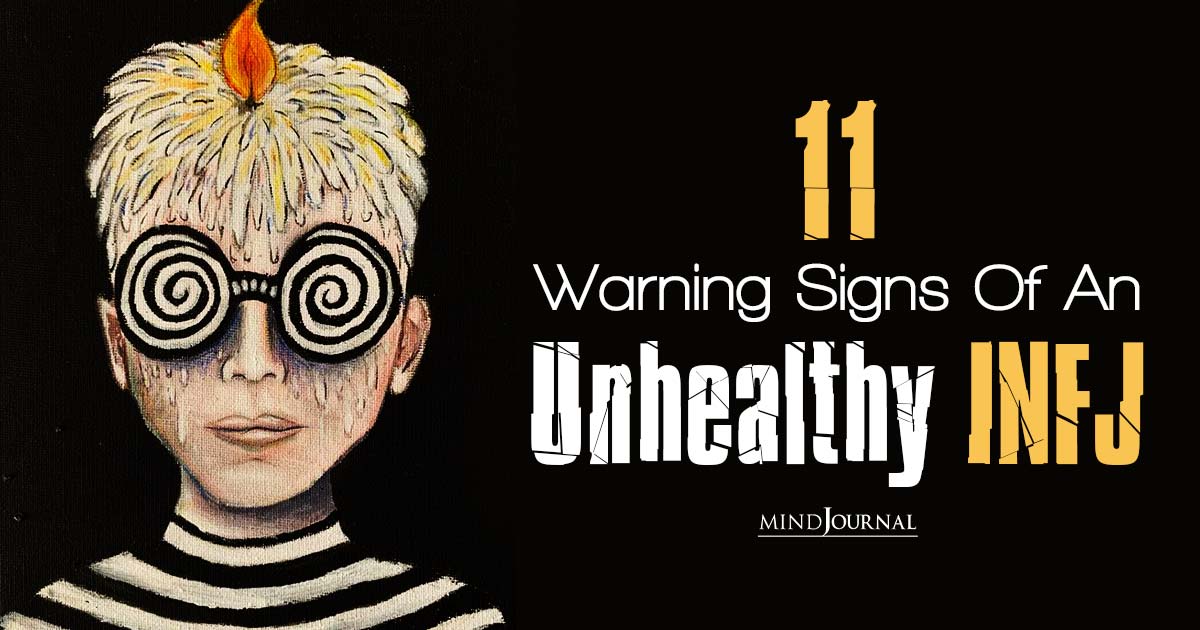
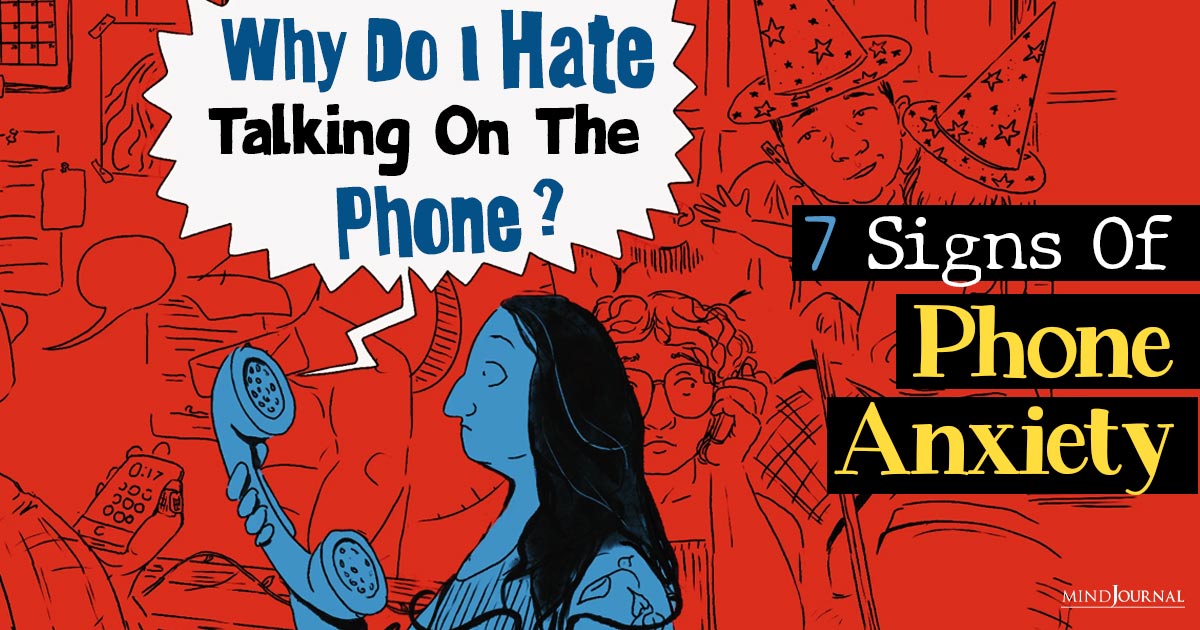
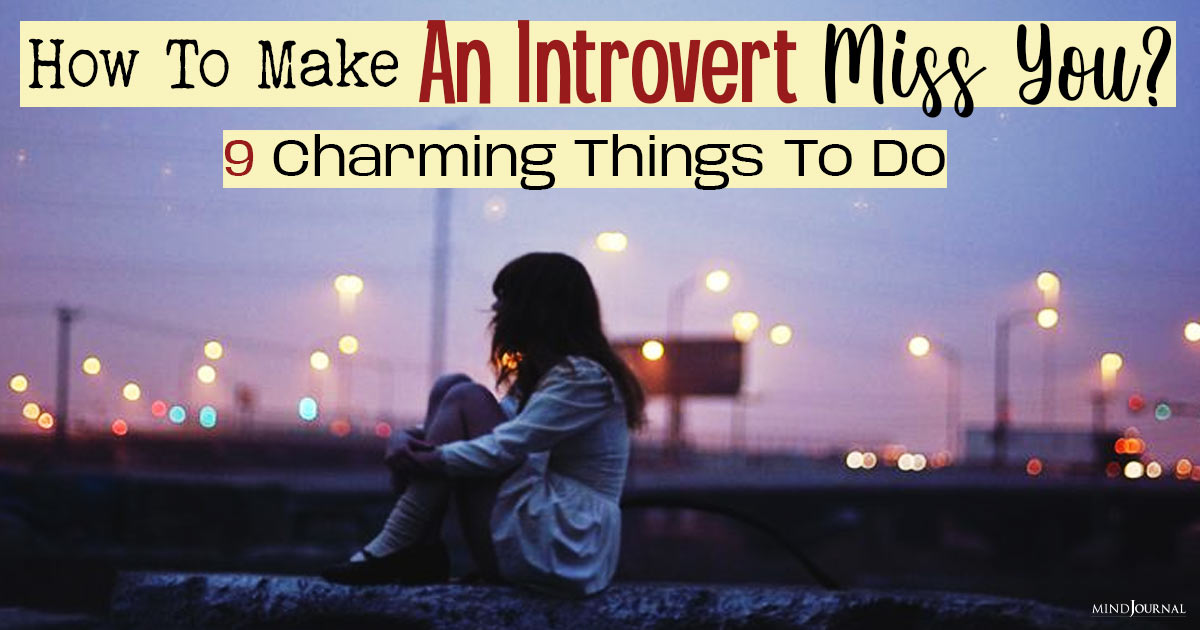
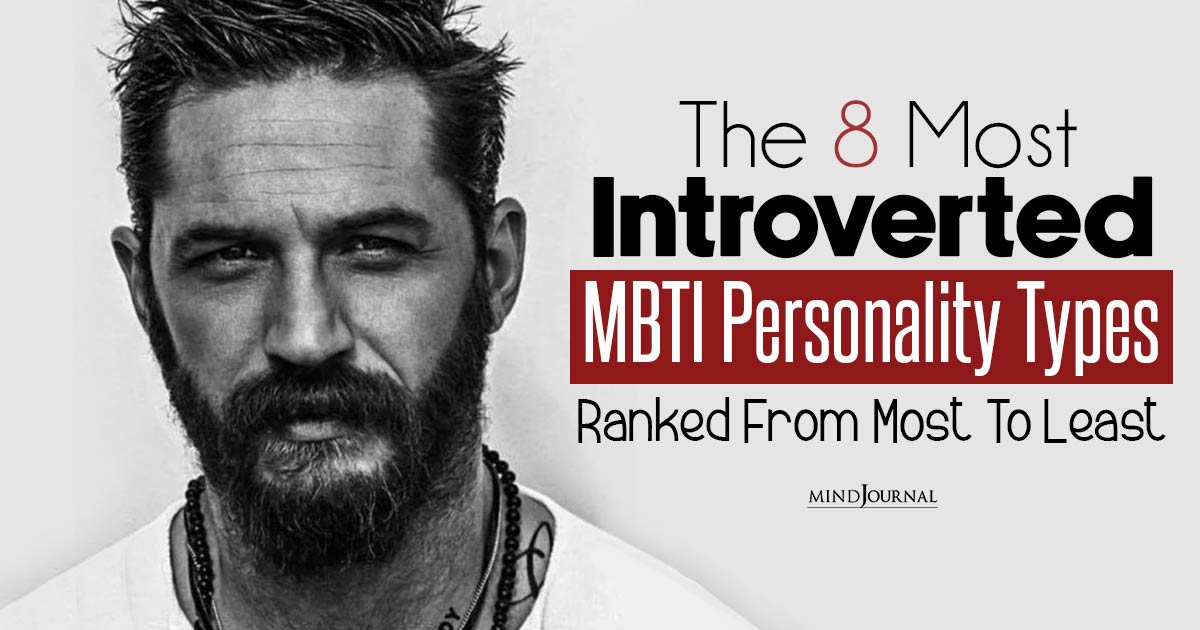
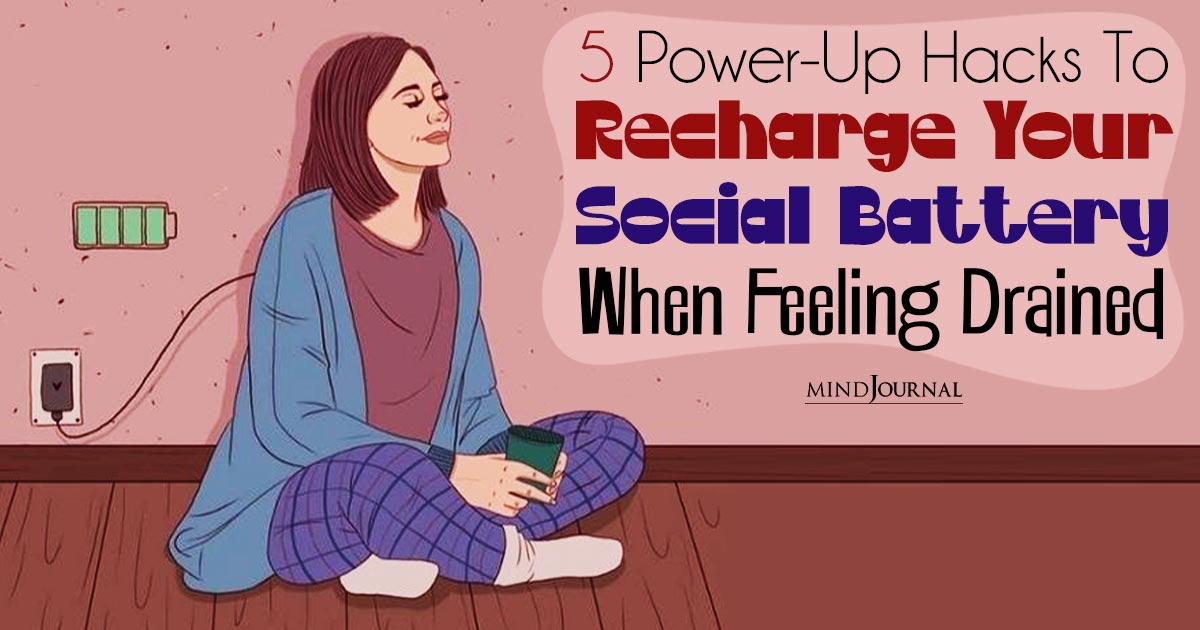
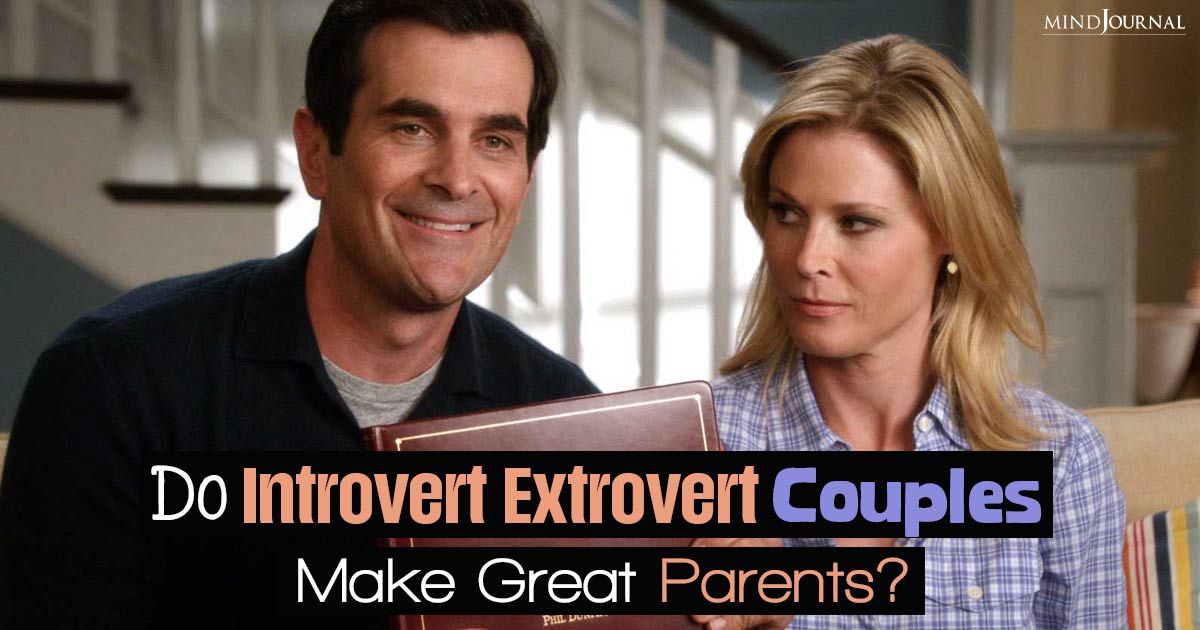

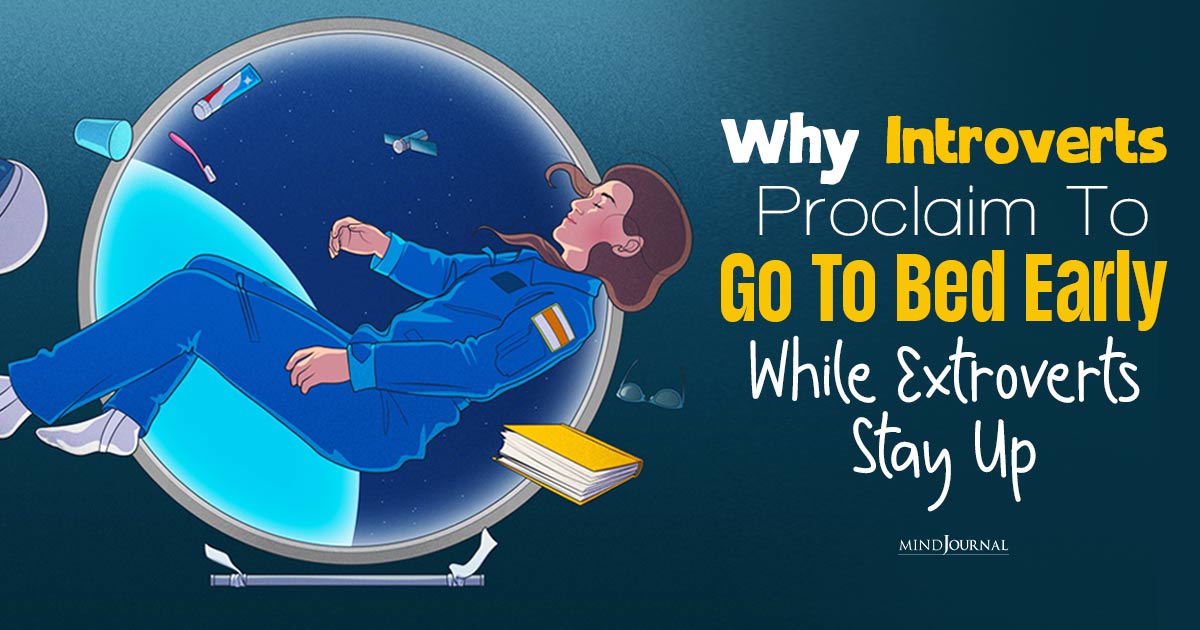
Leave a Reply